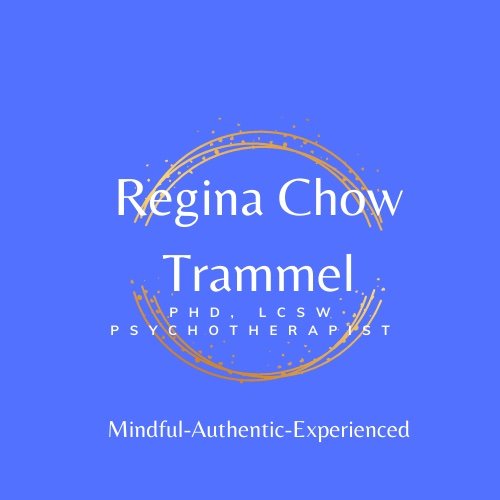Mindfulness and Anti-Aging: A Vital Practice for Perimenopausal Women
Mindfulness and Anti-Aging: A Vital Practice for Perimenopausal Women
Aging is inevitable, but how we age is largely within our control. In recent years, the focus has shifted from merely looking younger to embracing longevity, vitality, and overall well-being. For perimenopausal and menopausal women, this shift is even more crucial as hormonal changes impact both physical and emotional health. While exercise, nutrition, and sleep are well-known factors in healthy aging, one often-overlooked key to a vibrant life is emotional balance through mindfulness.
The Role of Mindfulness in Anti-Aging
Mindfulness is more than a buzzword—it’s a scientifically backed practice that helps regulate stress, enhance emotional resilience, and even improve physical health. Chronic stress accelerates aging by increasing inflammation, disrupting sleep, and weakening the immune system. Perimenopausal women, in particular, often experience heightened stress due to fluctuating hormones, which can lead to anxiety, mood swings, and even cognitive fog.
By practicing mindfulness, you can: reduce stress and cortisol levels, which contribute to premature aging and weight gain.
Mindfulness calms the nervous system, reducing these negative effects. It also enhances mood and emotional well-being by increasing dopamine and serotonin, the brain’s “feel-good” chemicals, helping combat mood swings and irritability. Regular mindfulness practice supports brain health by improving memory, focus, and even neuroplasticity, helping to prevent cognitive decline. Additionally, it boosts immune function by balancing the nervous system, leading to a stronger immune response, reducing inflammation, and lowering the risk of age-related diseases.
Activating the Parasympathetic Nervous System for Longevity
One of the key mechanisms through which mindfulness supports anti-aging is by activating the parasympathetic nervous system (PNS), which is responsible for rest, relaxation, and healing. The vagus nerve, a major component of the PNS, plays a crucial role in regulating heart rate and blood pressure, improving digestion and nutrient absorption, reducing inflammation throughout the body, and enhancing respiratory function. Simple mindfulness practices, such as deep belly breathing, meditation, or guided visualization, can stimulate the vagus nerve, helping your body transition from a state of stress to a state of restoration.
Practical Mindfulness Techniques for Perimenopausal Women
Incorporating mindfulness into your daily routine doesn’t have to be complicated. Breathwork for calmness, such as the 4-7-8 breathing technique, can be effective. Inhale for four seconds, hold for seven, and exhale for eight to activate the parasympathetic nervous system and reduce anxiety. Mindful movement, including yoga, Tai Chi, and walking meditation, combines physical activity with mindfulness, supporting both body and mind. Body scanning is another useful practice—lie down, close your eyes, and mentally scan your body from head to toe, noticing areas of tension and consciously relaxing them. Journaling for emotional balance helps promote self-awareness and reduce emotional stress by writing about thoughts, emotions, and gratitude daily. Mindful eating encourages you to take time to savor each bite instead of rushing through meals, focusing on taste, texture, and appreciation for nourishing your body.
Embracing Aging with a Mindful Mindset
Aging doesn’t have to be a battle—it can be a journey of self-discovery, growth, and vitality. By integrating mindfulness into your routine, you’re not just improving your emotional well-being; you’re actively promoting a longer, healthier, and more vibrant life. Perimenopause is a time of transition, but with the right mindset and tools, it can also be a time of empowerment. Start small, be consistent, and embrace the present moment—your future self will thank you.
Looking for More Support?
If you’re struggling with stress, hormonal changes, or emotional balance during perimenopause, therapy can be a valuable support for you. As a trauma-informed therapist specializing in mindfulness, I’d love to journey alongside you toward a vibrant, fulfilling life. Please reach out today to learn more!
Hi! I am Regina and I'm passionate about helping you work through challenges. Are you dealing with difficult and uncontrollable emotions: depression, anxiety, panic, history of trauma (sexual, physical, emotional), stress, exhaustion or burnout? I provide a caring, warm, & non-judgmental space so you can work through existential meaning, loneliness, purpose, authenticity & recapturing joy through interventions such as: mindfulness, parts, and cognitive skills. I provide safety as I also nudge my clients toward growth. Those who work with me say they have grown in insight and experience greater emotional regulation & hope. To find out more, please click the logo for my home page. I look forward to connecting with you!
Contact me, Regina Chow Trammel, LCSW, PhD, at 626-765-7602, or email me directly at reginatrammel@icloud.com today!

